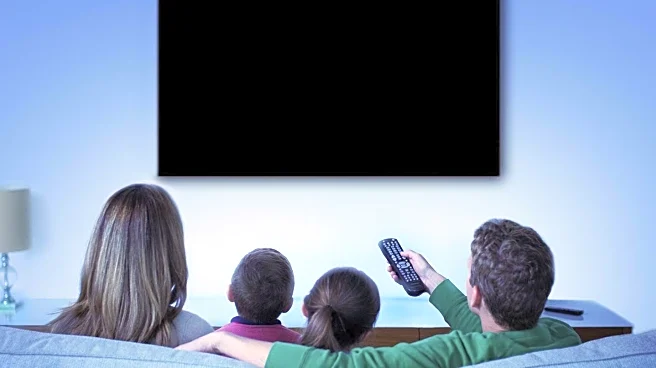What's Happening?
A study from Pediatric Research indicates that parents' screen time is a strong predictor of their children's screen time. Experts suggest that parents can set a positive example by being intentional with
their technology use, designating specific functions for devices, and creating device-free zones. Psychology professor Jean Twenge advises using technology for necessary tasks and putting it away otherwise. Establishing rules like no devices in bedrooms overnight can improve sleep quality. Parents are encouraged to narrate their tech use to children and balance it with quality time.
Why It's Important?
The findings underscore the significant influence parents have on their children's technology habits. By modeling healthy screen time practices, parents can help mitigate the negative effects of excessive device use, such as disrupted sleep and reduced attention spans. This approach promotes a balanced relationship with technology, encouraging children to engage in activities that support their development and well-being. As digital devices become increasingly integrated into daily life, establishing healthy habits early on is crucial for fostering positive technology use among future generations.
What's Next?
As awareness of the impact of parental screen time grows, more families may adopt strategies to promote healthy technology use. Schools and community organizations could offer resources and workshops to support parents in setting boundaries and modeling positive habits. Additionally, the findings may inspire further research into the long-term effects of parental influence on children's digital behavior. As stakeholders such as educators, parents, and policymakers explore ways to support healthy technology use, initiatives aimed at promoting digital literacy and mindfulness may gain traction.
Beyond the Headlines
The study raises important questions about the cultural and ethical implications of technology use within families. As parents navigate the challenges of balancing work and personal life with digital engagement, it prompts discussions about the role of technology in family dynamics and the need for intentional use. This development may also influence how future generations approach technology, emphasizing the importance of mindfulness and balance in digital interactions.









